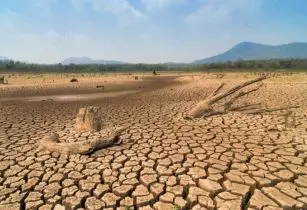An Integrated Phase Classification (IPC) analysis that categorises food insecurity, has revealed that more than 1.3 million people in three provinces of Angola are facing severe hunger due to drought
Cunene, Huila and Namibe are suffering as the worst drought in 40 years has left the fields barren, pasture lands dry and food reserves depleted.
World Food Programme’s (WFP) head of office in Angola Michele Mussoni said, “Migration of families to other provinces and Namibia in search of water and grazing for cattle has been registered in the south of the country. These areas have been suffering from the devastating effects of climate change and the current drought puts the food security and nutrition of vulnerable people under threat.”
High food prices and a locust infestation that caused severe damage to crops are worsening the effects of the drought and hampering people’s ability to get nutritious food. In the coming months, the situation is likely to worsen with the number of hungry people touching 1.58 mn between October and March 2022, the lean season when usually food stocks run low.
The drought has also impacted 1,14,000 children under the age of five, who are suffering or likely to suffer from acute malnutrition in the next 12 months, with serious effects on their physical and mental development.
To support the drought response, WFP in Angola has started working with provincial authorities of Huila and Cunene to strengthen the treatment and prevention of acute malnutrition and is working to secure resources for further expansion to other drought-affected areas. To expand nutrition activities to six affected provinces (Benguela, Cunene, Huambo, Huila, Kuanza Sul, Namibe) for the period from October 2021 to May 2022, WFP needs US$ 6.3 mn.
WFP’s assistance will be coordinated through the Inter-Ministerial Drought Task Force and will include support on nutrition, vulnerability analysis and mapping, supply chain and operations management. WFP will help the government set up food security and nutrition coordination mechanisms at the provincial level and is discussing other possibilities of support, including food assistance.
The IPC analysis was carried out by the Ministry of Agriculture and Fisheries with technical assistance from FAO, UNICEF and WFP in 17 municipalities of South-Western Angola within the FRESAN programme (Strengthening Resilience and Food and Nutrition Security in Angola) funded by the European Union.





